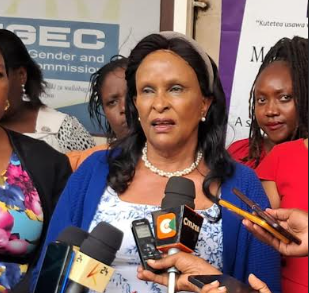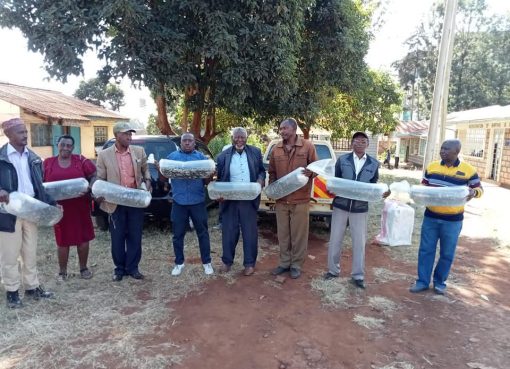Refugees have hailed the government for sponsoring their education through the Elimu Scholarships.
Edison Nyachwae Assistant County Commissioner Kakuma Turkana West said Kenyan laws, policies, and programmes do not discriminate against education as long as one is within the country’s borders and added that education is a fundamental human right.
According to the Assistant County Commissioner, the refugees confessed that the kind of support they get locally has never been seen anywhere else, adding that refugees in other countries want to come for the benefits and incentives enjoyed by their counterparts in Kenya, especially in the education sector.
Refugees enjoy the benefit of lower cutoff points in consideration for the Elimu Scholarships, at 250 marks for boys and 240 marks for girls, while for those living with disabilities and special needs, the marks will even go lower.
The seven thousand (7000) applicants from Kakuma and four thousand (4000) from Kalobeyei will be considered, and some applicants will be fairly eliminated considering their age and marks.
“Refugees need education scholarships but face challenges in getting information about the scholarships and misinterpretation,” Nyachwae said.
He appealed to the Ministry of Education and the Department of Refugee Services to expand the scholarship programme and increase the slots allocated to them.
The Community Selection and Advisory Committee will conduct home visits to assess the economic status of their homes and what the candidates said during interviews.
Block leaders at the refugee camps will assist the committee during home visits to match candidates with their rightful homes and avert instances of posing at deplorable homes that depict destitution to merit the scholarship award criteria.
There’s a preference for the girl child in the refugee camps since most of the population comes from backgrounds with a history of retrogressive cultures.
Most of the refugees hail from backgrounds where they never enjoyed fundamental human rights, so when they arrive, they tend to perpetuate them. For instance, most of them don’t believe in girls’ education and want to marry them off.
Kakuma CSAC chair said they give preference to the girl child because her challenges are bigger than those of the boy child.
The committee is working towards attaining gender equality by allocating 4000 slots, meaning 2000 scholarships for girls and the same number for boys.
Adding that, “We will apply affirmative action to the girls to match that of the boys.”
He revealed that the Jomo Kenyatta Foundation (JKF) allocated a figure of 886 for girls and 725 for boys, while Equity Group has their figures too.
It was observed that interest in education in the refugee camps is lower compared to that of normal Kenyans, making a case for two different scenarios and competitiveness. Where normal Kenyans would invite themselves for the interviews, the refugees are reluctant and need mobilisation, even for people who had applied to show up.
He called on refugees to take their children to school, and the government will find a way to help them.
CSAC is multi-agency, involving the National Government and partners. The turnout at Turkana University was better than expected, with student numbers anticipated at 7,000 turning up for the exercise of the interviews on day two.
Kakuma and Kalobeyei refugee camps have people from 24 nationalities, including South Sudanese, Somalis, Burundians, Congolese, and Ethiopians, in large numbers.
The language barrier was a challenge during the interviews since most parents speak in their native tongues, making it difficult to understand their stories, but the children intervened in translation, therefore there was no complete communication barrier.
In some cases, the candidates have been allowed to come in with several people who can help them with translation from their camps since they live as a community.
By Joseph Kamolo




